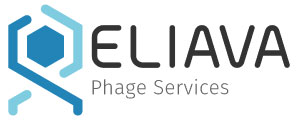EPS Technology
Technology includes application of bacteriophages via specific device – a fogger for decontamination of various surfaces infected by bacteria. Bacteriophages are the most abundant biological entities on earth. They are ubiquitous and inhabit various types of environments, including plants, animals and humans. We carry billions of phage particles in our bodies. Phages infect and kill bacteria that makes them as good natural antibacterials.
Phages as therapeutic or decontamination agents were used shortly after its’ discovery in 1917 by Felix d'Herelle. Already in the early 20th, d’Herelle and other microbiologists were able to isolate phages against different pathogenic bacteria, such as Shigella dysenteriae, Salmonella typhi, Escherichia coli, Vibrio cholerae, Yersinia pestis, Streptococcus species, Pseudomonas aeruginosa and others. The phages were successfully used to treat skin and eye, intestinal and systemic infections. The phage suspensions were administered by several routes such as topical applications, oral route and injections. Also as a preventive measure, d’Herelle' successfully used the phages for decontamination of water supplies in high epidemic areas.
After discovery of antibiotics, bacteriophages have been abandoned after the World War II in the West, while it was developed well and used in the former Soviet Union. Phages are still widely used in Georgia.
Our partner, the Eliava Institute of Bacteriophages, Microbiology and Virology in Tbilisi, Georgia is considered a pioneer in phage research and application. For many years, Eliava Institute has been a leading organization in bacteriophage research, production of phage preparations and their practical application for human therapy and prophylaxis. Eliava scientists have developed diagnostic, prophylactic and therapeutic phage-based preparations against different bacterial infections with applications in medicine, veterinary, and environmental protection.
Our technology is based on the application of phages against bacterial contamination on different surfaces, especially in medical settings, hospital and clinic environment. The phage is applied via a fogger, aerosol-producing device.
Bacteriophages have several advantages over chemical agents:
- Phages are self-replicating agents, meaning that during the bacterial-killing process they are capable of increasing in number. This ability could potentially reduce costs by reducing phage doses.
- Since phages consist mostly of nucleic acids and proteins, they are considered safe with no significant side effects.
- Phages are specific to target bacteria, which excludes the damage to the normal flora of the host.
- As the killing mechanism of phages differs from those of chemicals, phages can be readily used against bacteria resistant to chemicals.
- Phages against many pathogenic bacteria are easily discovered and isolated, often from the environmental sources (water, soil), while the development and production of chemicals are more sophisticated.
- Unlike broad-spectrum chemicals, the discarded phages are safe for the environment.
